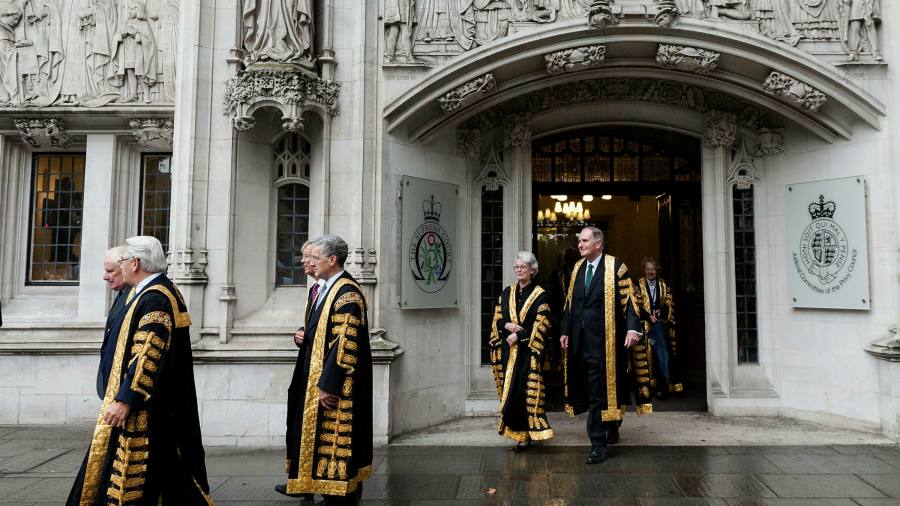[ad_1]
For decades, Britain’s judges were portrayed as a bastion of establishment conservatism — a bewigged relic, unrepresentative of the country at large and ignorant of the social changes taking place within it. More recently they have come under attack from the country’s ascendant right, cast as academic-inflected liberals more concerned with protecting the rights of criminals and migrants than the values of the more socially conservative public-at-large. This reached a climax during the bitter turmoil that followed the Brexit vote when high court judges were labelled “Enemies of the People†by a tabloid newspaper.Â
A proposal to allow the Minister of Justice more power to determine the make-up of the senior judiciary should be understood in this context. A paper published last week by the Policy Exchange think-tank, close to the Conservative party, suggested allowing the minister the final say on appointments based on a list produced by the independent Judiciary Appointments Commission that currently has sole responsibility for selecting candidates. Reform is needed, the report said, “to enhance the democratic legitimacy and accountability of senior appointments in the face of ascendant judicial powerâ€. Jack Straw, a former Labour justice minister, backed the report.
Judges’ relevance in big societal issues has increased markedly. The Supreme Court, the new home of what used to be known as the Law Lords, has heard more cases related to controversies such as devolution and gay rights than the dry tax issues that predominated when they were in the House of Lords. Mostly the government wins judicial review cases, in which the public alleges it has broken the law, but many Conservatives fret about possible cases against former soldiers or immigration rulings.
At the same time, Britain’s judges do not reflect the country they represent — another of the think-tank’s complaints. The profession is still heavily dominated by privately educated white men. Of any group of public servants examined by the Sutton Trust charity in 2019, they were the most elite: more than half graduated from both private school and either Oxford or Cambridge universities. This, however, largely reflects factors beyond the control of ministers — barriers to a more diverse legal profession appear much earlier in the recruitment process.Â
Ultimately, there is no case for increasing political control over the judiciary. Members of the appointment committee are already chosen by ministers, allowing for a degree of democratic accountability. Britain is not in constitutional stasis and, unlike in the US, a sovereign elected parliament can always change the law if MPs decide they disagree with court judgments. Only when parliament is unwilling to decide, as during the aftermath of the Brexit vote, or if politicians get buyers’ remorse over the rights they have granted the public, are judges thrust into the limelight. In neither case would making judges more beholden to ministers improve the quality of the decision making.Â
The increasing role of judicial review and the willingness of charities to take on the government in the courts has been a success overall, providing a useful corrective to the tendency for Britain’s executive to resemble an “elective dictatorshipâ€. Conservatives who now chafe at the friction it creates should reflect that a judiciary that is supposedly hostile to government may feel less of an encumbrance when the party is in opposition. For the integrity of Britain’s political system, and its people, the value of an independent judiciary should be clear.
[ad_2]
Source link






